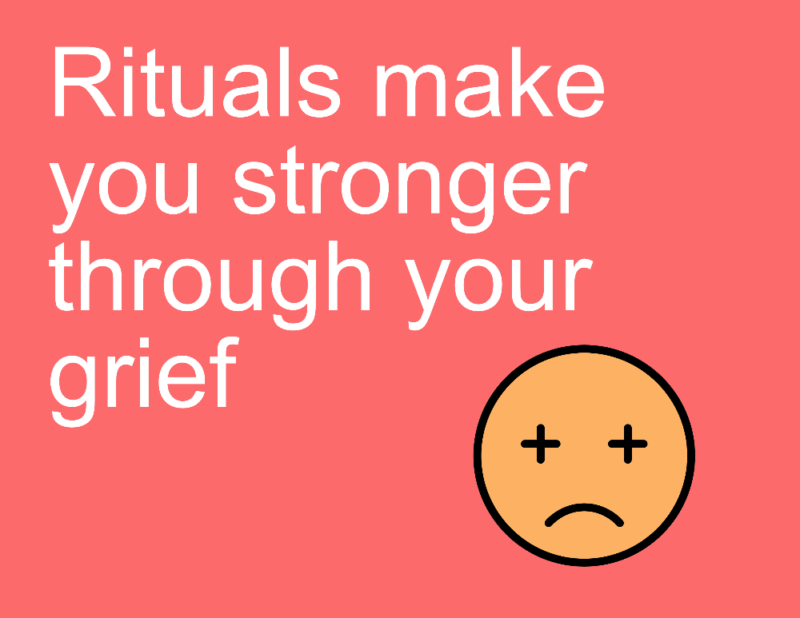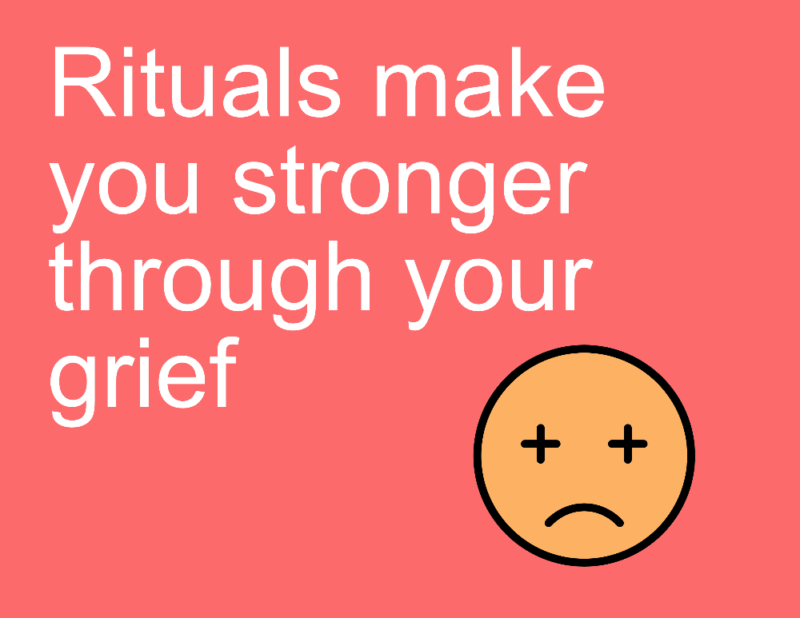Author Emily Esfahani Smith has an article in The Atlantic, called “In Grief, Try Personal Rituals,” that chronicles how rituals can help people move through the grieving process and overcome an extreme loss they’ve experienced.
She quotes a study from Michael Norton and Francesca Gino at Harvard Business School that finds the role of rituals in emotional resilience. Here is a link to their study from 2014.
To determine what that “something” was, Norton and Gino asked 76 research participants in their first study to write about a significant loss they experienced, like the end of a relationship or the death of someone they love. They also asked the participants to explain how they coped with the loss and to describe any rituals they did.
The researchers were surprised by the results. Many of the rituals reported were not the public ones that inspired Norton. Rather, they were private rituals. Only 15 percent of the described rituals had a social element (and just 5 percent were religious). By far, most of the rituals people did were personal and performed alone.
Some of the rituals:
- returning to the location of the breakup each month on its anniversary
- gather all the pictures of the former couple together, and then destroying them in small pieces, and finally burning them in the park where they first kissed
- playing a favorite song of a loved one
- going to a hairdresser to cut hair every first Saturday of a month, where they used to go together
- washing a car each week like a dead husband had
These rituals made people less depressed. These private, personal, emotionally-moving rituals helped connect them to positive memories of their loved ones that they have lost. Private rituals many seem meaningless, but they help people move on and stay connected. They also give control in a time of chaos.
When Norton and Gino probed deeper into the emotional and mental lives of their research subjects, they found that rituals help people overcome grief by counteracting the turbulence and chaos that follows loss. Rituals, which are deliberately-controlled gestures, trigger a very specific feeling in mourners—the feeling of being in control of their lives. After people did a ritual or wrote about doing one, they were more likely to report thinking that “things were in check” and less likely to feel “helpless,” “powerless,” and “out of control.”
In Grief, Try Personal Rituals – The Atlantic
And the research study:

